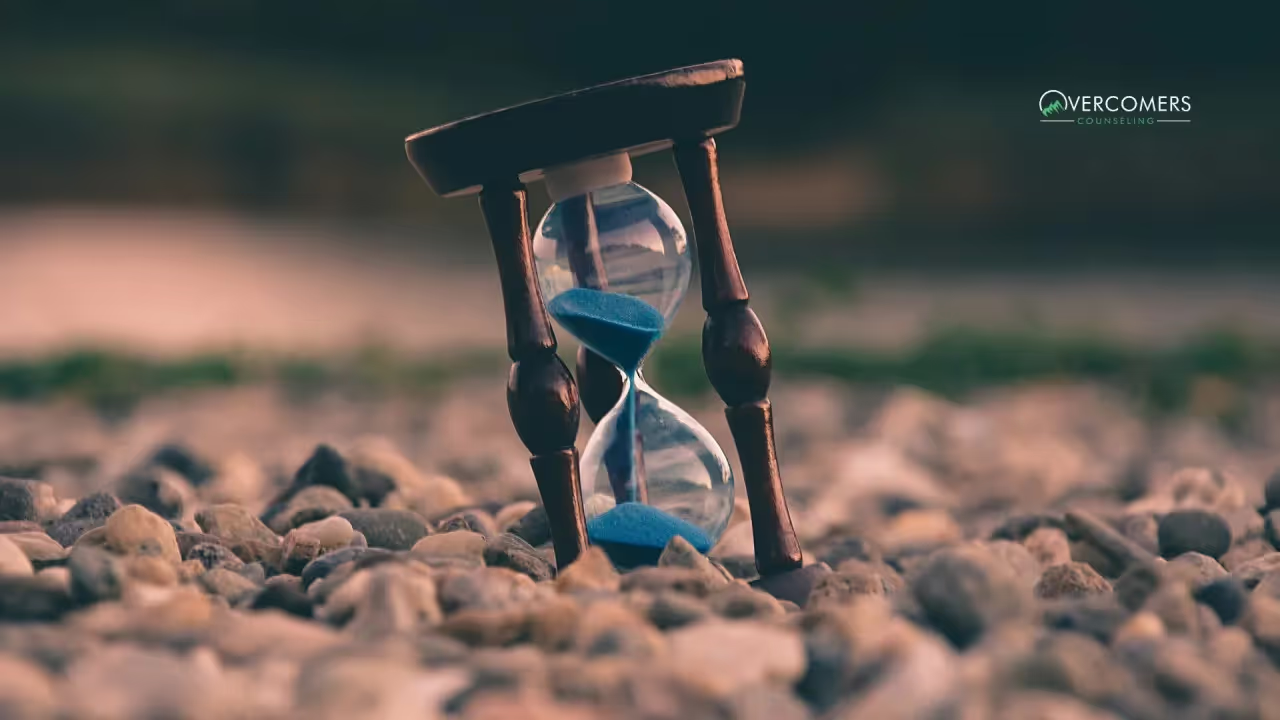As individuals age, the ways in which bipolar disorder manifests can change.As a result of this, support for bipolar disorder is crucial, and it becomes...

As individuals age, the ways in which bipolar disorder manifests can change.As a result of this, support for bipolar disorder is crucial, and it becomes even more important to understand how the condition changes over time.Bipolar disorder, commonly known as manic-depressive illness, is a mental illness characterized by extreme fluctuations in energy, mood, and activity levels.It affects millions of people worldwide, and its symptoms can vary widely depending on age.One of the most common ways bipolar disorder changes with age is the fluctuation in energy levels.As a person with bipolar disorder grows older, they may start to feel more fatigued, sluggish, or have difficulty initiating activities.Another way in which bipolar disorder changes with age is through changes in sleeping patterns.Older individuals with bipolar disorder may sleep much more or much less than usual, leading to mood swings and other related issues.Changes in appetite are also common in bipolar disorder, and these changes can be more pronounced as individuals age.Overeating, undereating, and changes in food preferences can occur, and it is essential to maintain a healthy and balanced diet.Below are more details on ways bipolar disorder changes with age.
Bipolar disorder changes with age, and one of the most significant ways is through changes in energy levels.While younger individuals may experience intense mood swings, older individuals may have more stable moods but struggle with low energy levels.These changes can impact daily functioning, and support for bipolar disorder is crucial to managing them effectively.As you age, bipolar disorder can also impact your sleep cycle.You may find yourself sleeping much more or much less than usual, and this can be a cause for concern.Less sleep can lead to more fatigue, which is another hallmark symptom of an episode of depression.The symptoms of fatigue might include both physical and mental exhaustion, as well as a lack of drive to do daily tasks like housework, bills, or job.However, if you have bipolar disorder, it is still possible to control and lessen your level of fatigue.Adopting a regular sleep hygiene routine is one method that can help your body enter into rest mode.Proper support for bipolar disorder that focuses on sleep hygiene and regular sleep schedules can help regulate sleeping patterns and improve mood stability, especially in older adults.

Bipolar disorder evolves with age, and changes in appetite are typical, particularly in older individuals.These changes can take the form of overeating, undereating, or a shift in food choices.Managing a healthy and balanced diet is essential to support the physical and mental health of individuals with bipolar disorder.Medication, stress, and other concurrent conditions can all influence appetite changes.Some mood stabilizers, for example, might cause weight gain or increase appetite, which can be difficult to manage.Stress can also cause appetite changes and trigger an episode of mania or depression.Co-occurring medical and mental health conditions, such as diabetes or eating disorders, can also have an impact on appetite and necessitate specialist care.A healthcare professional or a trained dietitian can help in the development of a healthy eating plan that takes into account any drug side effects or dietary limitations.
The onset age of bipolar disorder is a significant factor that can affect the severity and longevity of the condition.Studies suggest that the age of onset can influence the duration of depressive symptoms in older individuals with bipolar disorder.Individuals who develop bipolar disorder at a younger age may be more vulnerable to prolonged depressive symptoms as they age.Moreover, the earlier the onset age of bipolar disorder, the higher the risk of developing comorbid conditions such as substance use disorders or anxiety disorders.These conditions can exacerbate bipolar disorder symptoms and interfere with treatment outcomes.Additionally, older adults may face unique challenges in accessing support for bipolar disorder, such as limited social support, stigma, and age-related changes in physical health.Regular mental health check-ins with a healthcare provider can help identify changes in mood or behavior and adjust treatment accordingly.
Mood swings are a common sign of bipolar conditions, and they can be a difficult component of the condition for people of all ages.However, research suggests that as people with bipolar disorder age, their mood swings may last longer than those of younger people.This extended period of time can magnify the impact of mood swings on everyday functioning and general well-being.Mood swings may manifest in a variety of ways, such as euphoria, irritation, worry, or depression.These mood swings can disrupt relationships, employment, and daily life; therefore, they must be managed appropriately.Mood stabilizers and antipsychotic drugs, as well as psychotherapy and lifestyle adjustments, can help moderate mood swings.It is also essential to have bipolar disorder support that can provide both emotional and practical assistance.Support groups, programs, and caregiver support groups can provide individuals with bipolar disorder and their families with education, resources, and encouragement to manage the condition effectively.These resources can also offer a safe space for individuals to express their feelings and experiences, reducing feelings of isolation and stigma.
As individuals with bipolar disorder age, they may experience a decline in cognitive function, making it challenging to remember things, process information, or make decisions.This cognitive decline can be a result of both the aging process and the effects of bipolar disorder on the brain.Furthermore, the aging process can result in the development of physical health issues such as diabetes, cardiovascular disease, or chronic pain, which can co-occur with bipolar disorder.These disorders can make managing bipolar conditions more difficult and increase their symptoms.Fortunately, there are different types of treatments available to help people with bipolar conditions manage the impacts of cognitive decline and co-occurring physical and mental health conditions.Support for bipolar disorder can come in many forms, such as medication, therapy, and lifestyle changes.For example, staying active and eating a healthy diet can help manage physical health conditions, while mindfulness meditation and cognitive-behavioral therapy can help manage cognitive decline.
Bipolar disorder is a condition that can change significantly as individuals age.However, with proper support for bipolar disorder, including therapy, medication, and lifestyle changes, individuals with bipolar disorder can manage their symptoms effectively and improve their quality of life.Some ways bipolar disorder changes with age include changes in energy levels, changes in appetite, onset age, mood swings, and lastly, co-occurring physical and mental health disorders and cognitive decline.
https://www.choosingtherapy.com/does-bipolar-disorder-get-worse-with-age/
https://www.psycom.net/bipolar-disorder/does-bipolar-get-worse-with-age
https://www.healthgrades.com/right-care/bipolar-disorder/does-bipolar-get-worse-with-age?hid=exprr
https://psychcentral.com/bipolar/fatigue-bipolar-disorder#how-to-manage-fatigue
https://www.clearviewtreatment.com/resources/blog/do-symptoms-of-bipolar-get-worse-with-age/
Living with bipolar disorder can feel like riding a roller coaster you didn’t exactly sign up for—episodes of deep depression on one end and bursts of high energy or euphoria on the other. Everyone’s experience looks a little different, and at Overcomers Counseling, we recognize that your story deserves to be understood on its own terms.
Absolutely. Bipolar disorder may be a lifelong companion, but with consistent treatment and support—like the kind offered at Overcomers Counseling—you can build a life that feels steady, healthy, and genuinely yours. Think of it like learning to drive on a windy mountain road: tricky at first, but totally manageable with the right guidance.
Supporting someone with bipolar disorder starts with compassion, patience, and a solid understanding of what they’re navigating. Offer steady emotional support, encourage them to stay connected to treatment, and avoid taking their symptoms personally. And remember, caring for yourself matters too. Overcomers Counseling can help guide both you and your loved one through these ups and downs.
Five common signs of bipolar disorder include dramatic shifts in mood, energy, and activity levels. This often shows up as episodes of mania—high energy, excitement, or irritability—and episodes of depression marked by sadness or hopelessness. Other signs may include disrupted sleep, racing thoughts, and impulsive or risky decisions. If these sound familiar, Overcomers Counseling can help you sort through the noise and find clarity.
There isn’t one single cause of bipolar disorder—it’s usually a blend of genetics, brain chemistry, and life experiences like stress or trauma. Think of it as a complex puzzle with several interconnected pieces. When you’re ready to make sense of those pieces, Overcomers Counseling is here to help you put the picture together.